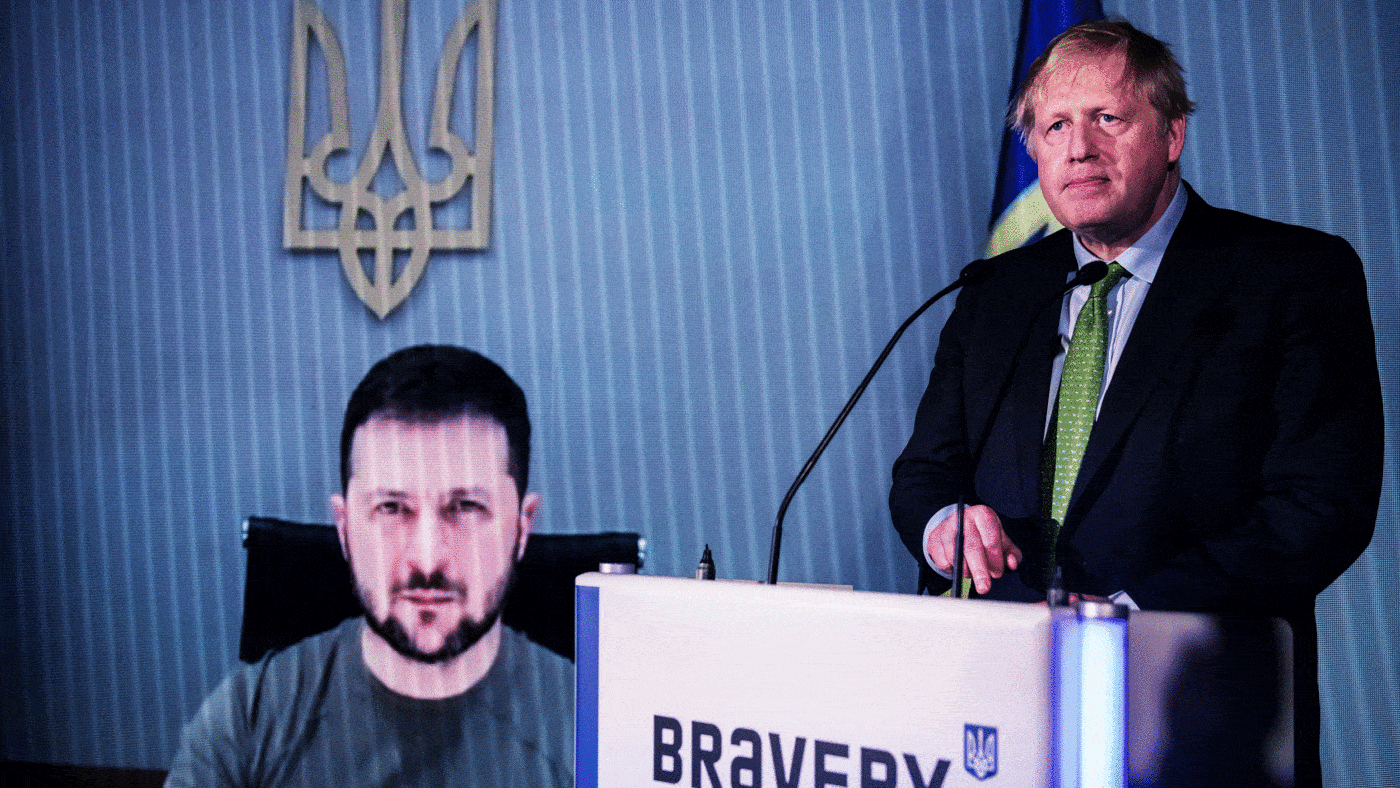The announcement of Boris Johnson’s resignation last week, concluding weeks of political turmoil brought about by successive scandals, was met with a sigh of relief by many in the United Kingdom. However, in Central and Eastern Europe, the tone was far more muted. To countries in the region, the British Prime Minister was seen as a key ally in the fight to defend Ukrainian sovereignty.
For those outside the UK, the resignation of Boris Johnson was a near shock – many had not been following the progression of the so called ‘Partygate’ scandal, and even fewer had followed the succession of Conservative MPs who had been caught misbehaving in other ways. As such, they were unprepared for the prospect of losing one of their closest allies.
In Ukraine over the weekend, a number of tributes to Boris Johnson have been paid – including streets being named after him, a music video dedicated to him, and the social media profiles of several major public organisations photoshopping in his trademark mop of hair. However, all of this disguises a great sense of unease.
The United Kingdom has now gone from a pillar of stability to a country with a question mark hanging over its top office. No one in the region can begin to imagine what kind of person will take over Number 10, and if that person will be as committed to the crisis in Ukraine as Boris Johnson.
The reality in London however is that the Conservative Party is unified when it comes to carrying the banner for Ukraine. Many candidates would not just carry on the policies of Boris Johnson but expand on them. Fears of a British abdication of duty to the rules-based system are ultimately misplaced.
Of those candidates who have so far addressed security as an issue in the race for the Conservative Party Leadership, all have spoken in favour of expanding British defence. Recently appointed Chancellor Nadhim Zahawi has already stated as part of his leadership bid that he will increase British defence spending to 2.5% of GDP – above the NATO requirement. Grant Shapps has said he will increase it to 3%.
There is also little doubt that Foreign Minister Liz Truss would carry over her support for Ukraine and other countries in the region if she were to be elected Party Leader. She has, as Foreign Secretary, helped to cement an alliance between Poland, Ukraine, and the United Kingdom on security. She has also boosted this country’s presence in the Baltic states in the fact of Russian sabre rattling.
Chair of the Foreign Affairs Committee Tom Tugendhat perhaps has some of the strongest credentials when it comes to combating Russia. For many years now, he has been ahead of the discussion on Russian aggression – calling for some of the toughest sanctions, including the seizure of Russian assets in Britain to pay for the arming and eventual reconstruction of Ukraine.
His own military background and experiences in Iraq and Afghanistan mean that he has real world, and practical experience, of a war zone. Putting him in a position to perhaps offer better informed support to the embattled Ukrainians.
Former Defence Minister Penny Mordaunt would also offer similar grit when it comes to leadership on Ukraine. Like Tugendhat, she has served in the armed forces as a Captain in the Naval Reserves. As Defence Minister she criticised then Chancellor Philip Hammond for not spending enough on the military, citing in particular the work the UK had been doing to retrain and rearm the Ukrainian military in the aftermath of the 2014 illegal occupation of Crimea. More recently, she worked with veterans in her constituency in Portsmouth to collect ballistic vests, helmets, and medical supplies to send to the front lines in Ukraine.
Support for NATO, the Transatlantic Alliance, and Ukraine are at the core of British Conservative belief. Conservatives, from the very beginning, have remained committed to upholding the international rules-based system, through thick and thin. This is, in part, because the United Kingdom has itself been the victim of Russian aggression in the past.
Ukrainians, and other allies in the region, have little to worry about when it comes to the Conservative Party, and the United Kingdom’s, commitment to the fight for sovereignty and independence against Russia.
Click here to subscribe to our daily briefing – the best pieces from CapX and across the web.
CapX depends on the generosity of its readers. If you value what we do, please consider making a donation.


